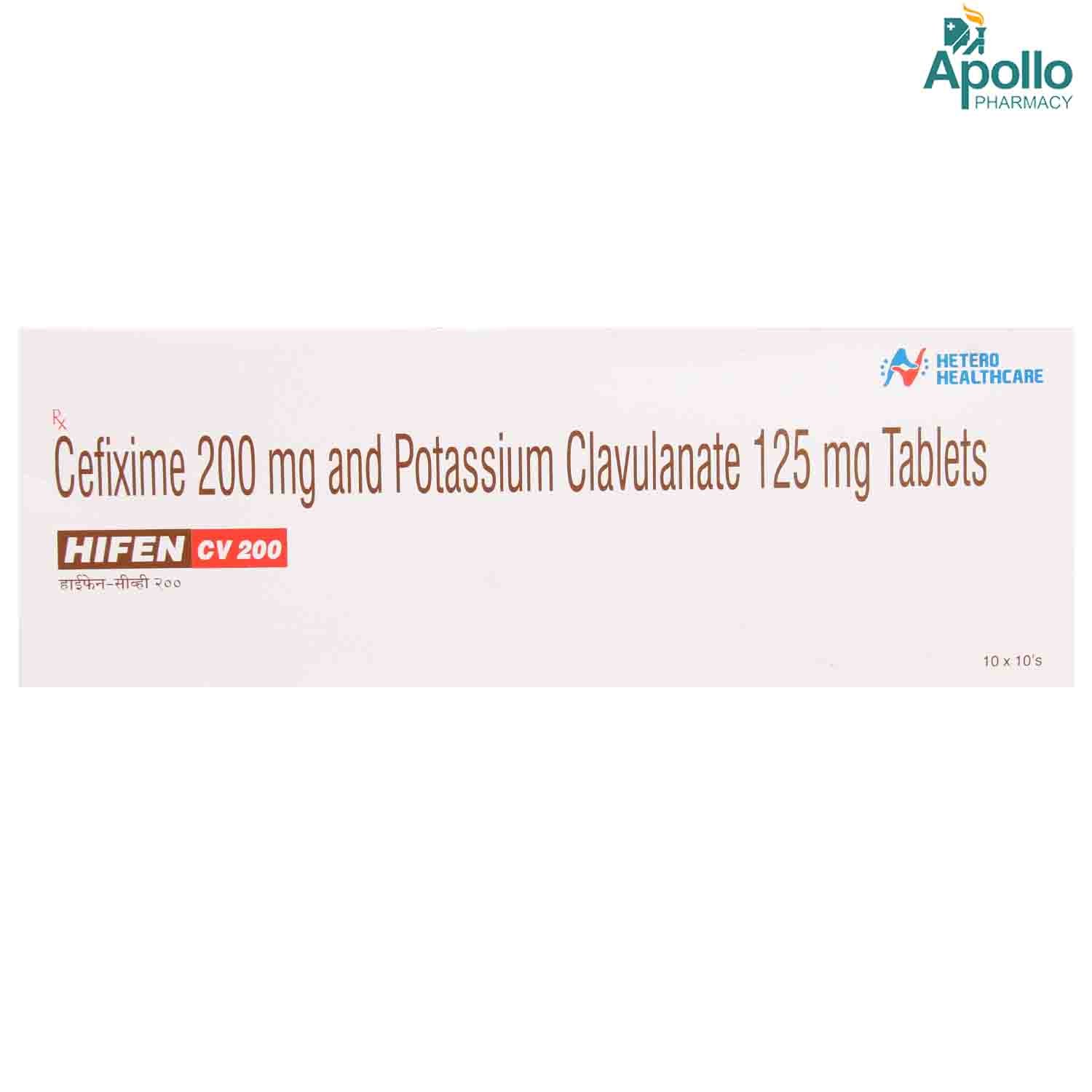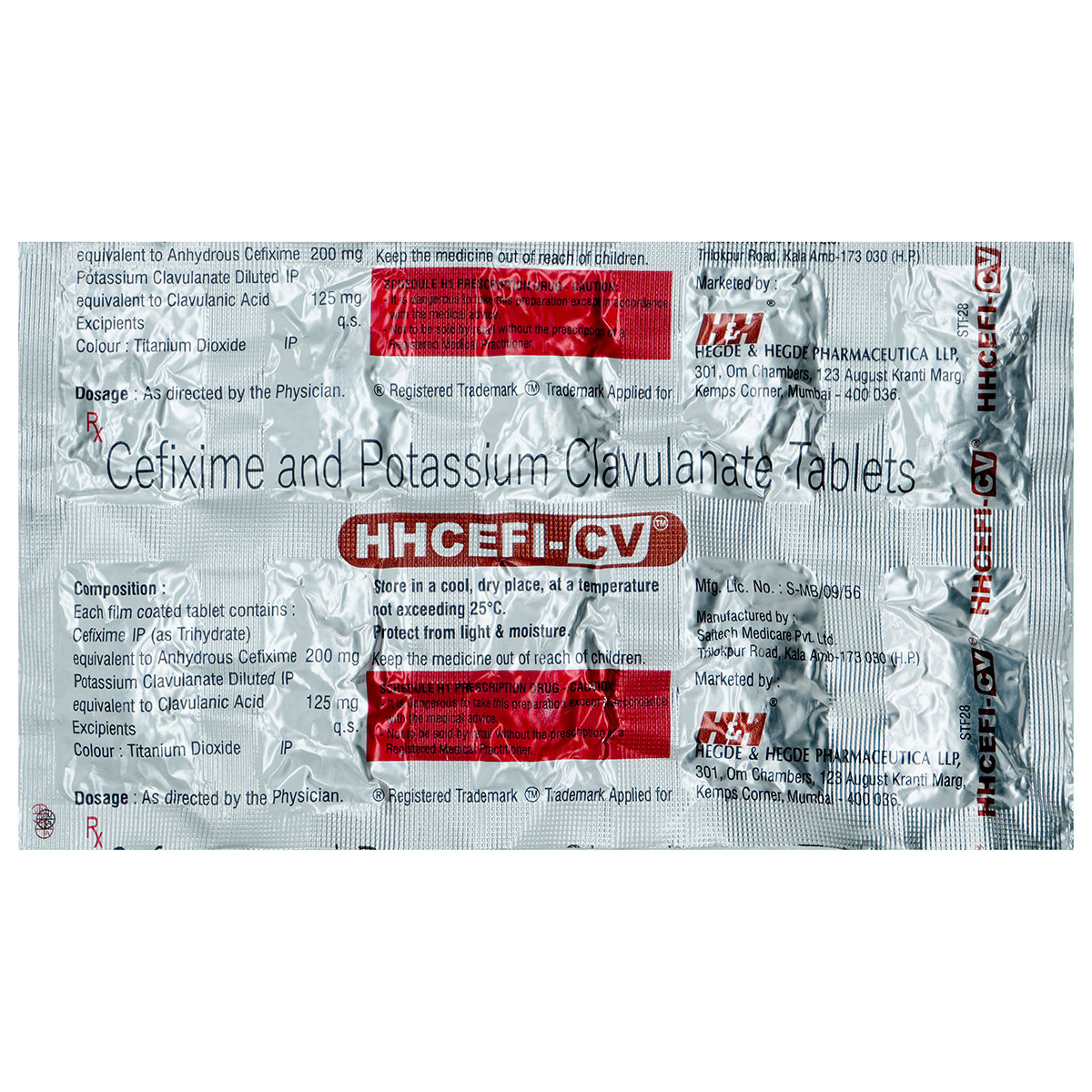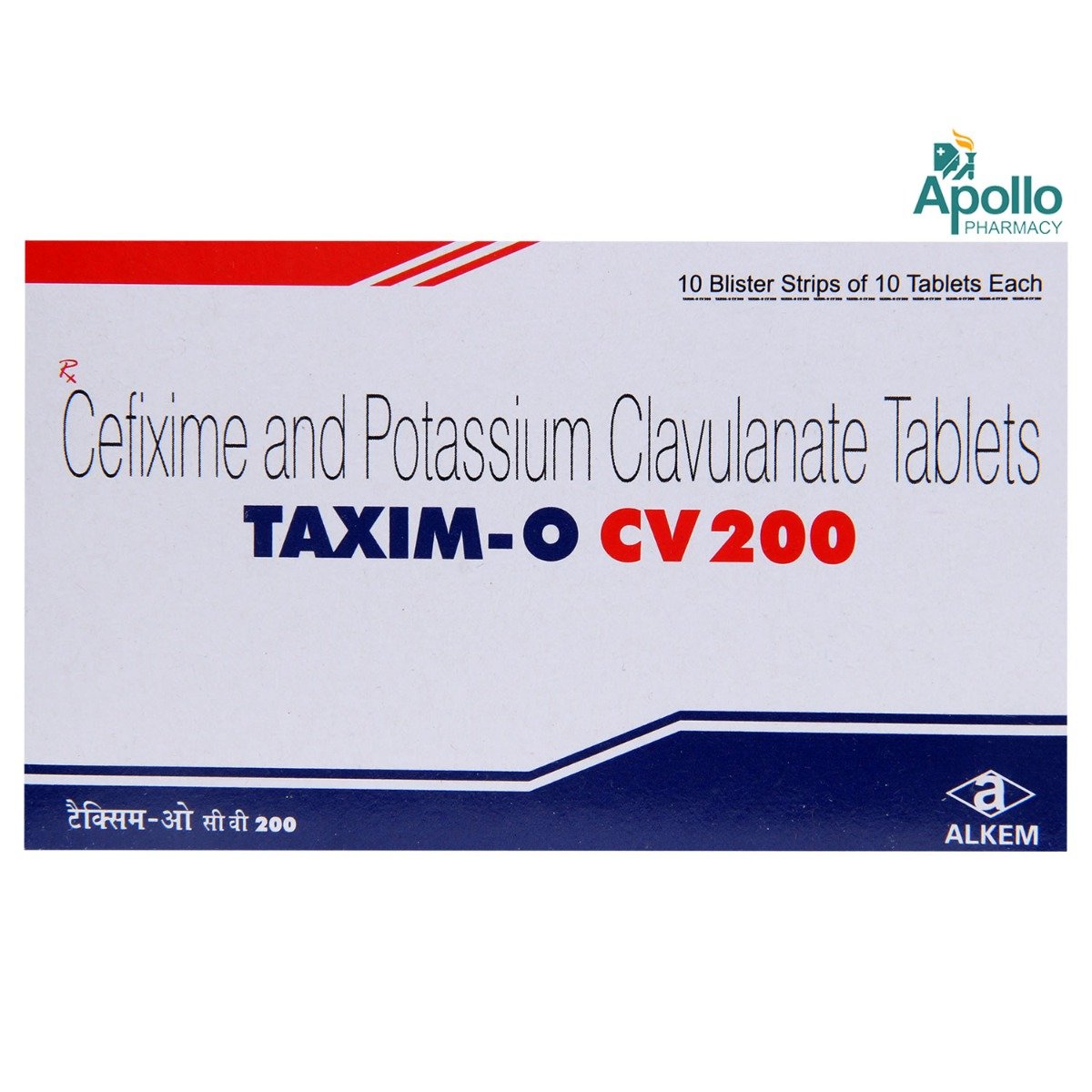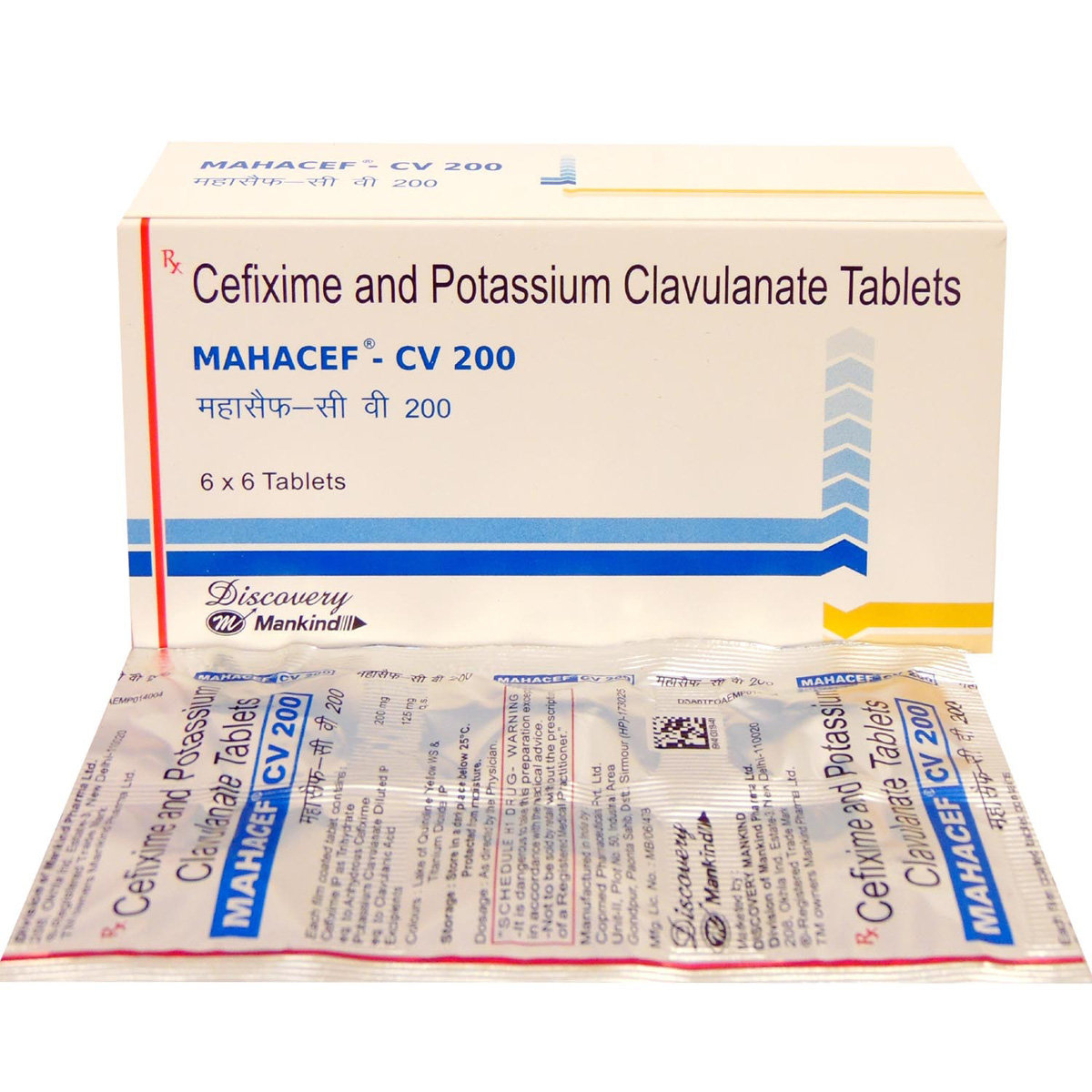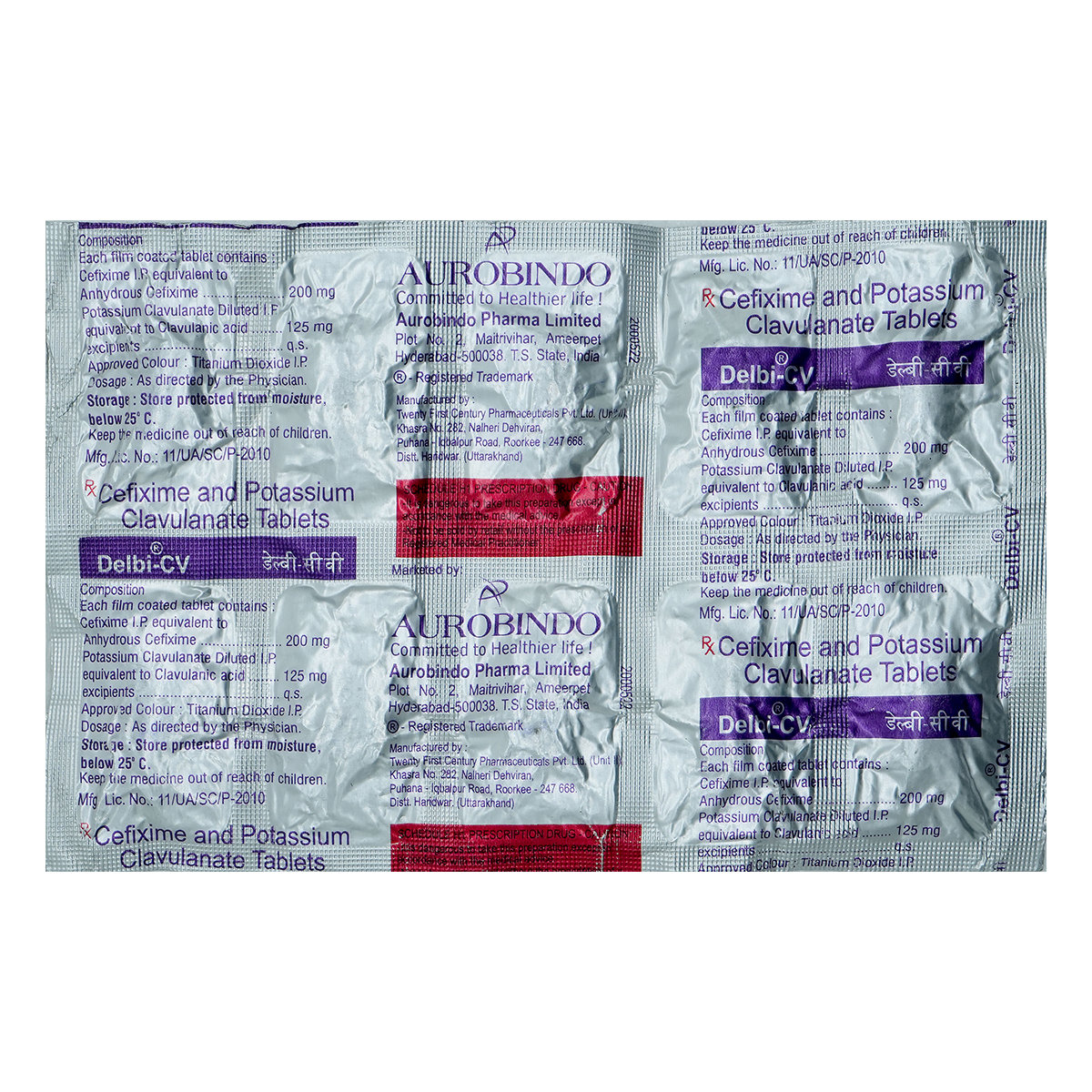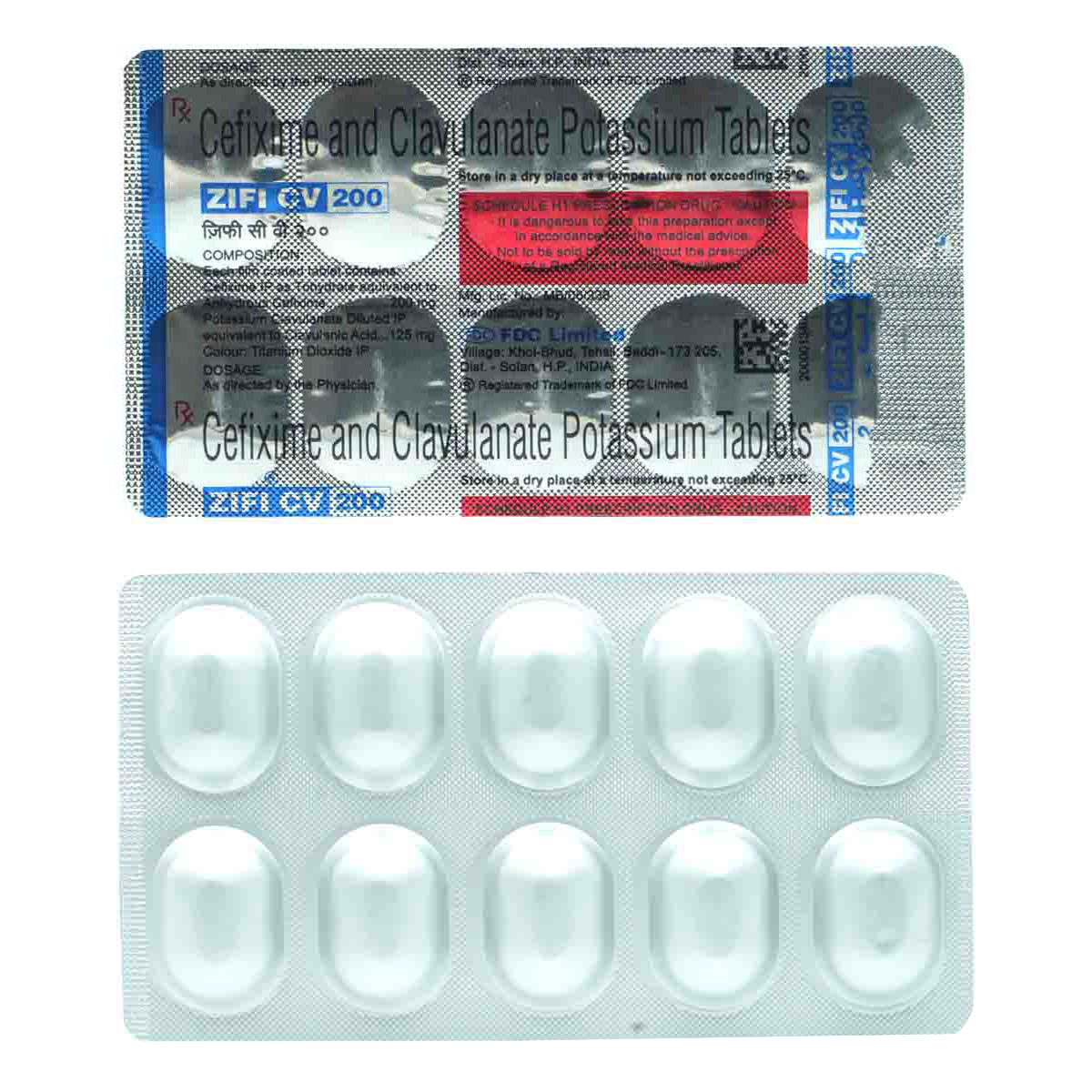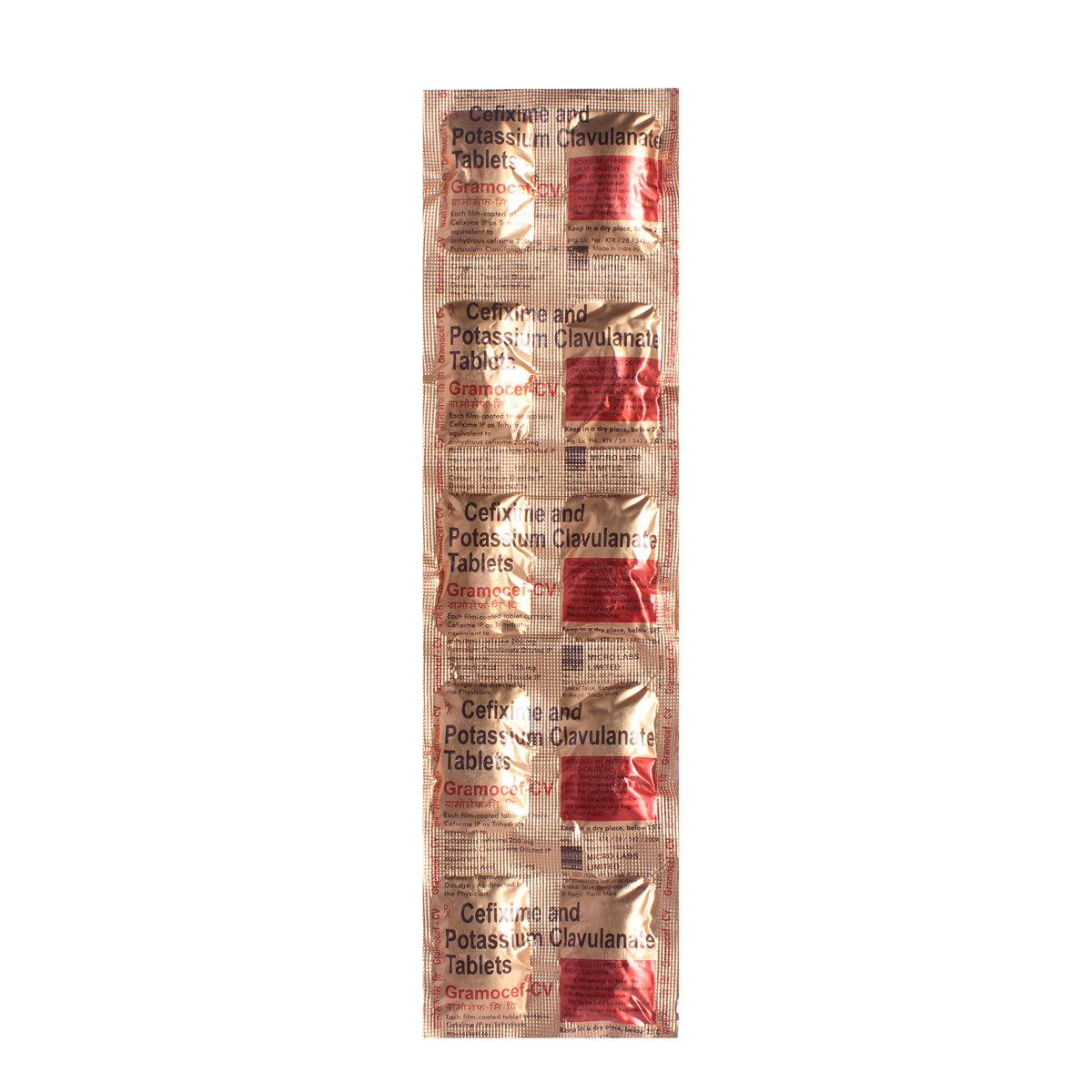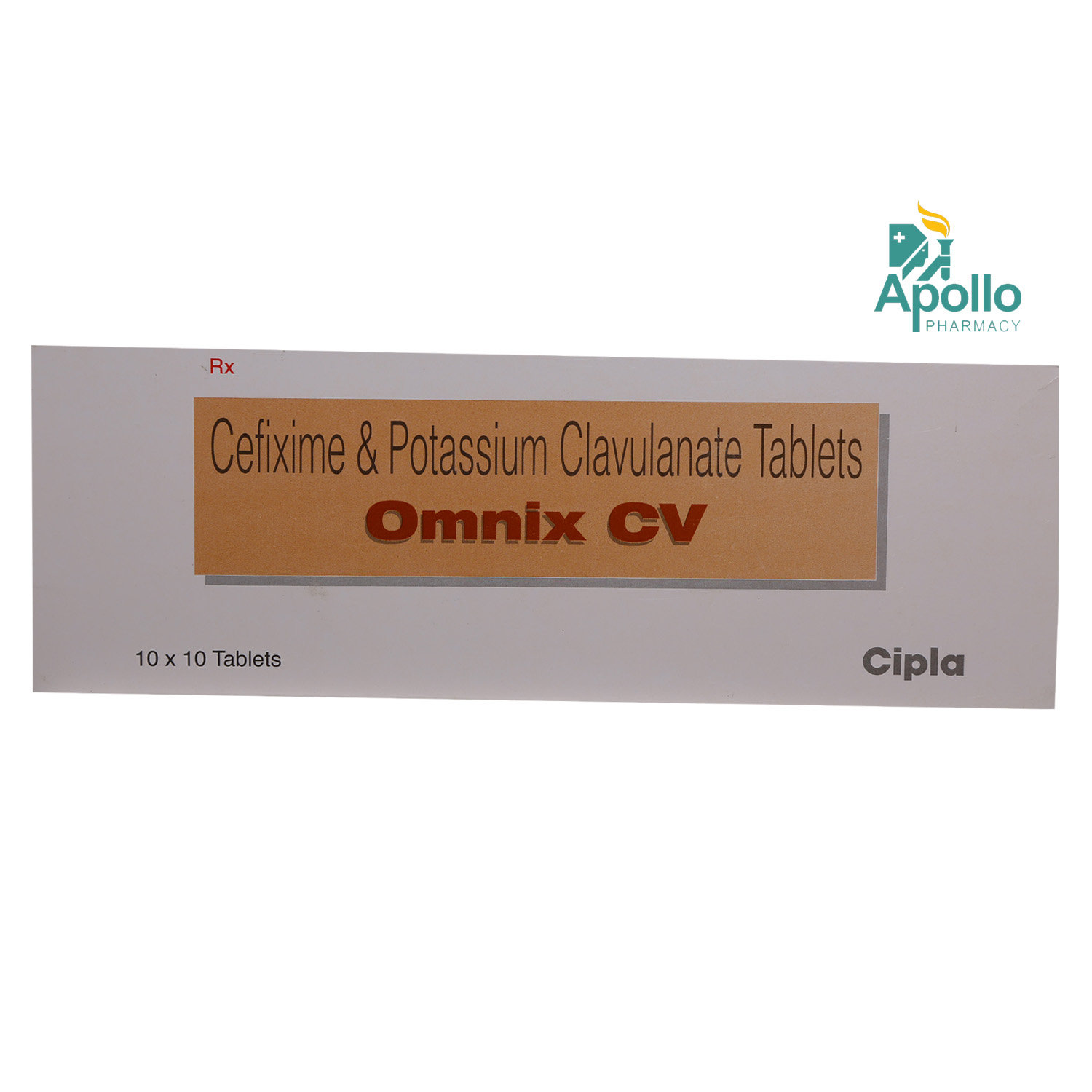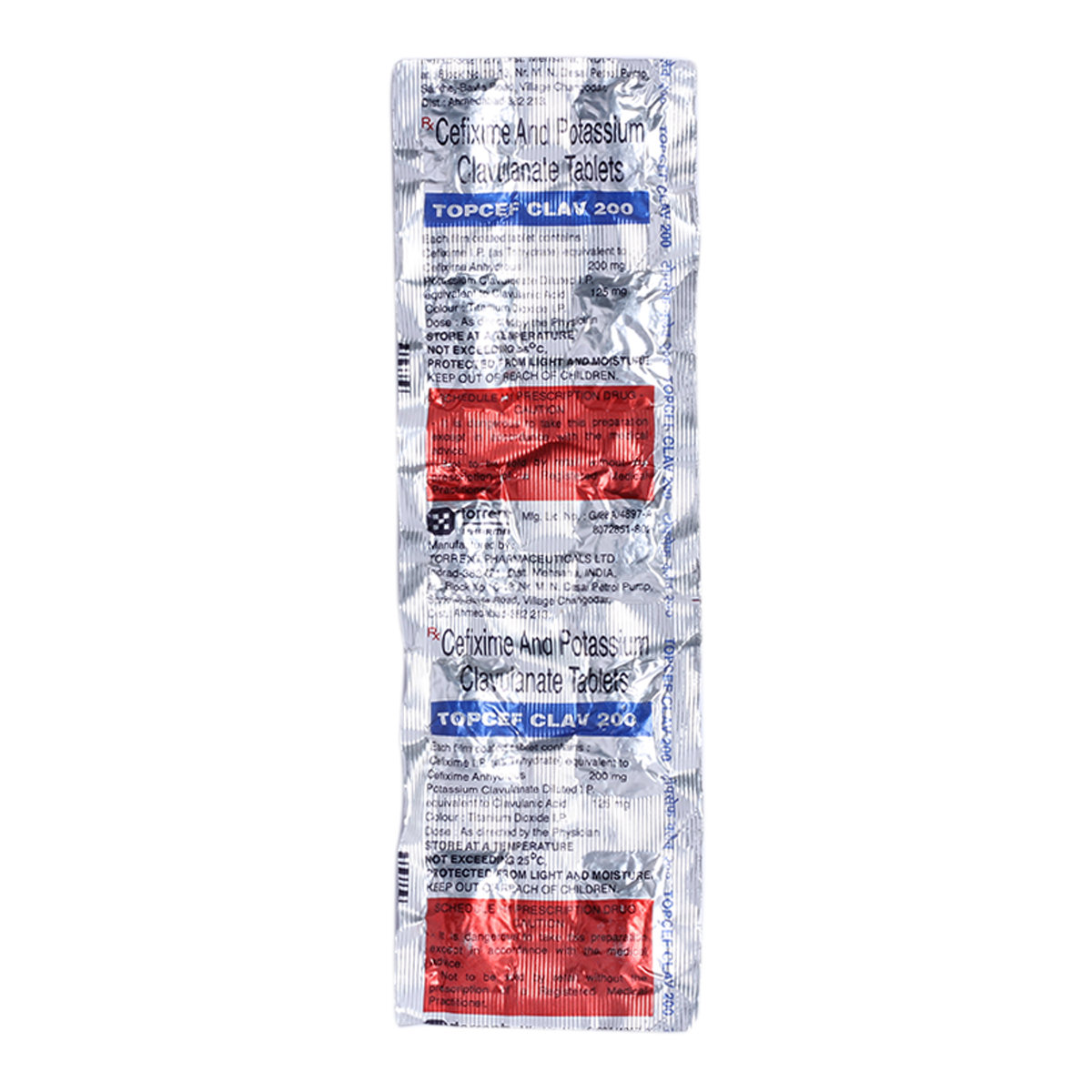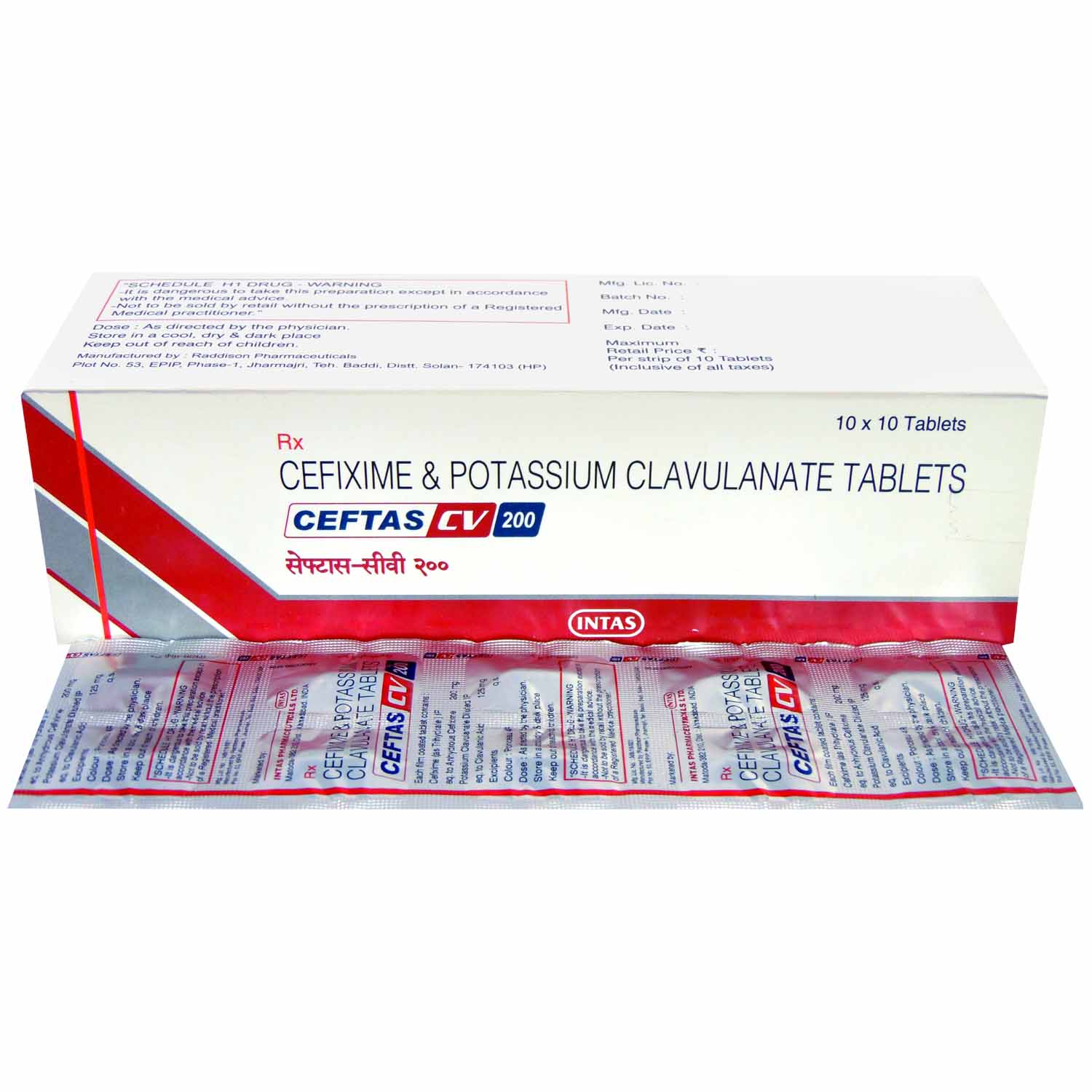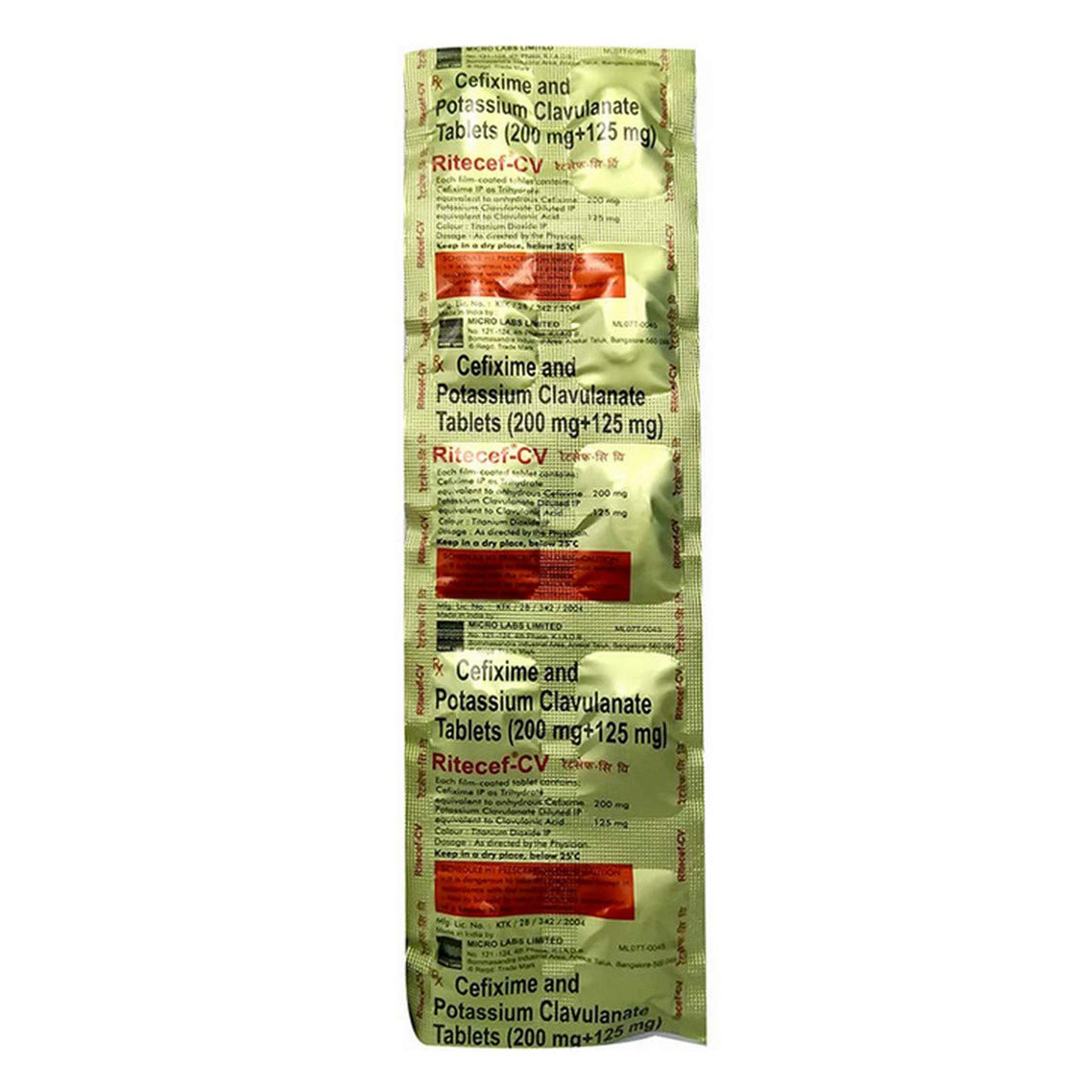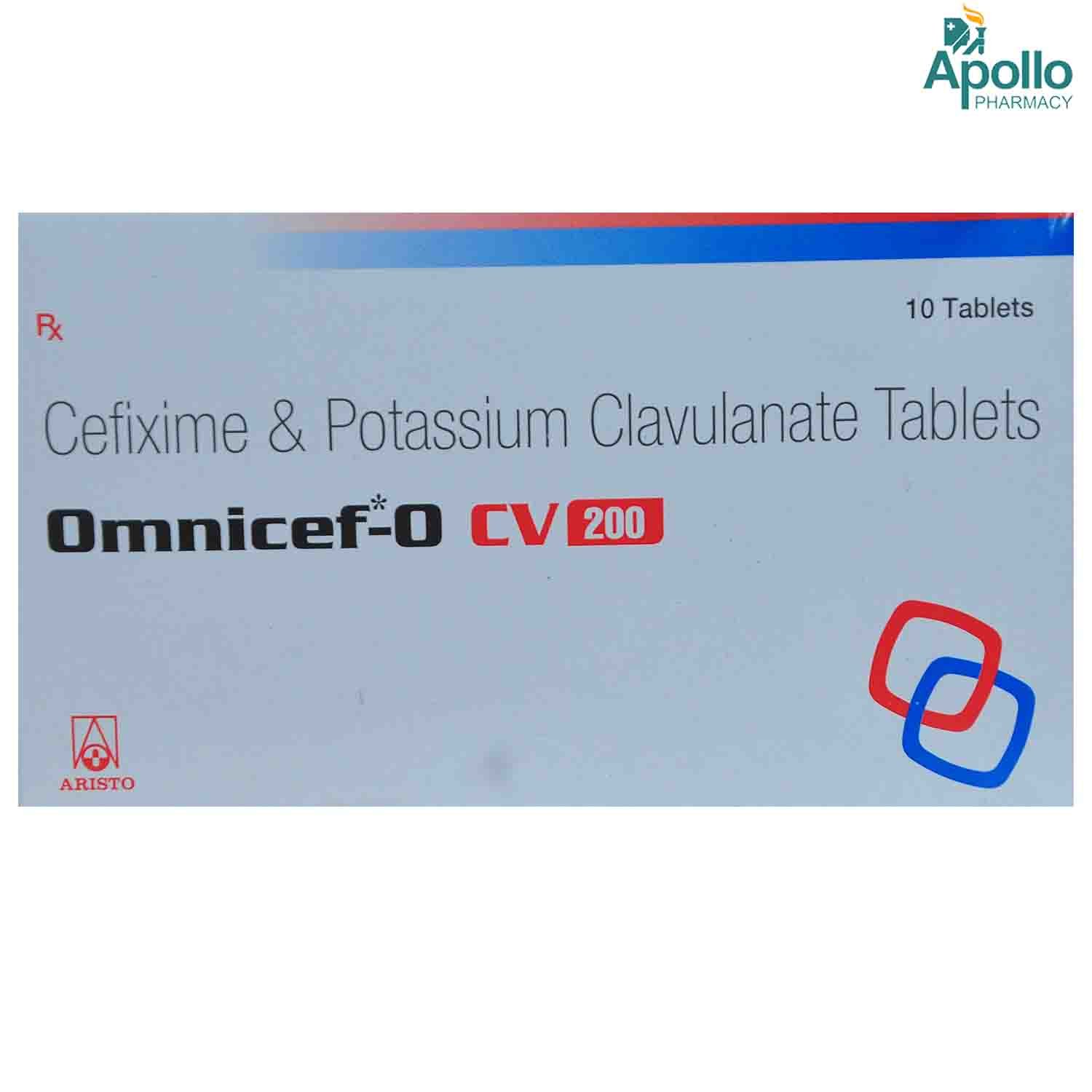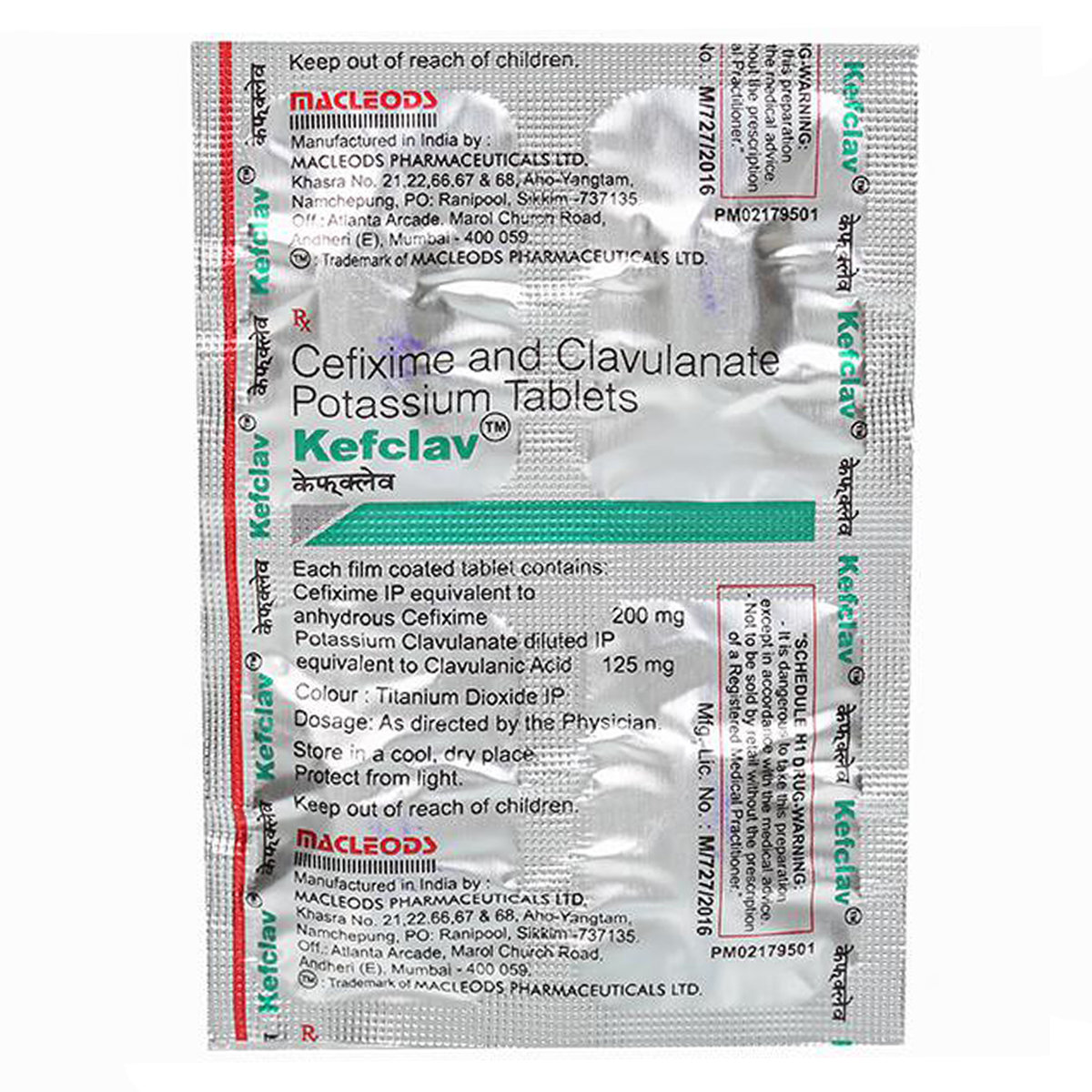- Home
- Cefrax-CV Tablet
Cefrax-CV Tablet Substitute
Cefrax-CV Tablet Substitute
Medicine Composition:
CEFIXIME-200MG + CLAVULANIC ACID-125MGAll Substitutes & Brand Comparisons
RX
Cefcare CV Tablet 10's
Welcare Pharma Pvt Ltd
₹244.5
(₹22.01 per unit)
16% CHEAPERRX
Hifen CV 200 Tablet 10's
Hetero Drugs Ltd
₹247.5
(₹22.28 per unit)
15% CHEAPERRX
Hhcefi CV Tablet 10's
Hegde & Hegde Pharmaceutica Llp
₹266.5
(₹23.99 per unit)
8% CHEAPERRX
Taxim-O CV 200 Tablet 10's
Alkem Laboratories Ltd
₹278
(₹25.03 per unit)
4% CHEAPERRX
Mahacef-CV 200 Tablet 6's
Mankind Pharma Pvt Ltd
₹168.5
(₹25.28 per unit)
3% CHEAPERRX
Out of StockDelbi-CV Tablet 10's
Veritaz Healthcare Ltd
₹311.5
(₹28.04 per unit)
6% COSTLIERRX
Zifi CV 200 Tablet 10's
FDC Ltd
₹331
(₹29.79 per unit)
13% COSTLIERRX
Gramocef CV Tablet 10's
Micro Labs Ltd
₹332.5
(₹29.93 per unit)
13% COSTLIERRX
OMNIX CV 200MG TABLET
Cipla Ltd
₹347.5
(₹31.28 per unit)
18% COSTLIERRX
Topcef Clav 200 Tablet 10's
Torrent Pharmaceuticals Ltd
₹353
(₹31.77 per unit)
20% COSTLIERRX
Ceftas CV 200 Tablet 10's
Intas Pharmaceuticals Ltd
₹358
(₹32.22 per unit)
22% COSTLIERRX
Ritecef-CV Tablet 10's
Micro Labs Ltd
₹363.5
(₹32.72 per unit)
24% COSTLIERRX
Omnicef-O CV 200 mg Tablet 10's
Aristo Pharmaceuticals Pvt Ltd
₹374
(₹33.66 per unit)
27% COSTLIERRX
Cefolac CV 200 mg Tablet 4's
Macleods Pharmaceuticals Ltd
₹153
(₹34.43 per unit)
30% COSTLIERRX
Kefclav Tablet 4's
Macleods Pharmaceuticals Ltd
₹153
(₹34.43 per unit)
30% COSTLIER

When Should You Consider Switching from Cefrax-CV Tablet ?
Patients may explore substitutes in the following scenarios:
- High monthly cost of Cefrax-CV Tablet
- Non-availability in local pharmacies
- Generic recommendation by a doctor
- Side effects or better tolerability with alternatives
What to Know Before Switching
Before you switch from Cefrax-CV Tablet to another medicine, here are some important points to keep in mind:
Same salt, different brands:
Most substitutes contain the same active ingredient - CEFIXIME-200MG + CLAVULANIC ACID-125MG, but the fillers, coating, or manufacturing quality may vary slightly.
Consult your doctor first:
Even if the salt is the same, your doctor can confirm if the substitute is right for your condition, dosage, and health history.
Watch out for allergies or reactions:
Some people may react differently to certain brands due to inactive ingredients. If you notice any side effects, inform your doctor immediately.
Price ≠ effectiveness:
A lower-priced substitute doesn't mean it's less effective. Many generic medicines work just as well as branded ones.
Check the dosage form and strength:
Always match the substitute’s strength (e.g., 5mg, 10mg) and form (tablet, capsule, syrup) with what your doctor prescribed.
Uses
Cefrax-CV Tablet is used in the treatment of bacterial infections. The detailed uses of Cefrax-CV Tablet are as follows:
- Bacterial Infections: Cefrax-CV Tablet is commonly prescribed for treating various bacterial infections, such as respiratory tract infections, urinary tract infections, and skin infections.
- Sinusitis: Cefrax-CV Tablet can be effective in managing sinusitis, which is an inflammation or infection of the sinus cavities.
- Bronchitis: Cefrax-CV Tablet may be utilized in the treatment of bronchitis, particularly when caused by bacterial pathogens.
- Ear Infections: Cefrax-CV Tablet can be used to treat middle ear infections (otitis media), which are often caused by bacteria.
- Dental Infections: Cefrax-CV Tablet can also be effective in treating dental infections and associated abscesses due to its antibacterial properties.
Medicinal Benefits
Cefrax-CV Tablet belongs to the group of medicines called antibiotics used to treat various bacterial infections of the urinary tract, ear, throat, lungs, and uncomplicated gonorrhoea. Cefrax-CV Tablet is a combination of two antibiotics, namely: Cefixime (cephalosporin antibiotic) and Clavulanic acid (beta-lactamase inhibitor). Cefixime works by preventing the formation of bacterial cell covering, which is necessary for their survival. Thereby, kills the bacteria and helps in treating and preventing the spread of infections. Clavulanic acid works by enhancing the activity of cefixime against bacteria and decreases bacterial resistance. Together, Cefrax-CV Tablet helps to treat bacterial infections. Cefrax-CV Tablet does not work against infections caused by the virus, including cold and flu.
FAQs
The substitutes of Cefrax-CV Tablet contain the same active salt(s) - CEFIXIME-200MG + CLAVULANIC ACID-125MG. However, they may differ in price, manufacturing quality, and inactive ingredients. Speak to your doctor to find a suitable option.
Switching to a generic substitute medicine in the place of Cefrax-CV Tablet is often possible if it has the same salt, strength, and dosage form. But always check with your doctor before making any changes to your medication.
Generics versions of Cefrax-CV Tablet are typically more affordable because they don’t include the original brand's research, development, and marketing costs. They contain the same active ingredient and are approved for safety and effectiveness.
Most people don’t notice any difference. However, some may react to different fillers or coatings. If you notice any unusual symptoms after switching, consult your doctor.
Make sure the new medicine has the same active salt, strength, dosage form. Always confirm the change with your doctor or pharmacist.
Substitutes of Cefrax-CV Tablet meet the same safety and efficacy standards as Cefrax-CV Tablet , but small differences in absorption or formulation can exist. A doctor can help you choose the right one for your needs.
Yes. Substitutes of Cefrax-CV Tablet may vary in color, size, or shape due to differences in manufacturing and branding, but this does not affect how they work.
Yes, it’s generally safe to switch between multiple substitutes of Cefrax-CV Tablet if they have the same salt and strength. However, always inform your doctor so they can monitor how your body responds.
Yes, many people safely use substitutes of Cefrax-CV Tablet for long-term treatment. Just ensure it’s done under medical supervision.
If your symptoms stay under control or lab results remain stable, the substitute for Cefrax-CV Tablet is likely working well. Regular follow-ups with your doctor are important.
Absolutely. Even with the same salt, small differences can affect how your body responds when switching from Cefrax-CV Tablet to its substitute. Always consult your doctor before switching.
Cefrax-CV Tablet is used to treat various bacterial infections of the urinary tract, ear, throat, lungs, and uncomplicated gonorrhoea.
Cefrax-CV Tablet is a combination of two antibiotics, namely: Cefixime (cephalosporin antibiotic) and Clavulanic acid (beta-lactamase inhibitor). Cefixime works by preventing the formation of bacterial cell covering, which is necessary for their survival, thereby, killing the bacteria, preventing the spread of infections. Clavulanic acid works by enhancing the activity of cefixime against bacteria and decreases bacterial resistance.
Diarrhoea might be a side-effect of Cefrax-CV Tablet . Drink lots of fluids and eat food rich in fibre if you experience diarrhoea. If you find blood in stools (tarry stools) or if you experience prolonged diarrhoea with abdominal pain, stop taking Cefrax-CV Tablet and consult your doctor. Do not take anti-diarrheal medicine on your own.
It is recommended to complete the course of Cefrax-CV Tablet even if you feel better as it is an antibiotic, and leaving it in between may lead to even severe infection that will, in fact, stop responding to the antibiotic as well (antibiotic resistance).
Do not take Cefrax-CV Tablet if you are pregnant or planning for pregnancy unless prescribed by a doctor. Your doctor will prescribe Cefrax-CV Tablet only if the benefits outweigh the risks.
It is safe to give Cefrax-CV Tablet to a child if prescribed by the doctor. The dose and duration may vary depending upon the age and severity of the infection.
Do not take Cefrax-CV Tablet on your own as self-medication may lead to antibiotic-resistance in which antibiotics fail to act against specific bacterial infections.
Cefrax-CV Tablet may affect certain laboratory test results such as blood tests, glucose test, and coombs test. Inform the person doing the tests that you are taking Cefrax-CV Tablet . Your doctor might ask you to stop the intake of Cefrax-CV Tablet before conducting these tests.
Cefrax-CV Tablet contains Cefixime which might interfere with the effectiveness of oral contraceptives (birth control pills). Consult your doctor if you have any concerns regarding this; your doctor may suggest an alternate method of contraception.
The duration of taking Cefrax-CV Tablet depends on the type and severity of the infection, as well as your individual response to the medication. It's essential to complete the full course of treatment as prescribed by your healthcare professional, even if you start feeling better before finishing the medication. This helps ensure that the infection is fully cleared and reduces the risk of relapse and antibiotic resistance. Stopping the medication too soon can lead to antibiotic resistance, making it harder to treat future infections, so be sure to finish the entire course of treatment as directed.
Cefrax-CV Tablet is ineffective against the flu because it fights against bacteria, not viruses. Taking antibiotics for viral infections can cause resistance and won't help you recover. For flu treatment, your doctor may recommend antiviral medications. Consult your doctor for personalized advice.
Consuming alcohol while taking antibiotics like Cefixime and Clavulanic acid is not recommended. Alcohol can interfere with the antibiotics, making them less effective, and increase the risk of side effects and stomach problems. Alcohol can also worsen dehydration, which can be a concern when taking antibiotics. To be safe, it's best to avoid alcohol or ask your doctor for guidance on drinking alcohol while taking antibiotics.
Swallow the medicine as a whole with a glass of water; do not chew or crush. Follow your doctor's dosage and duration instructions.
If you have Renal problems, use Cefrax-CV Tablet with caution. Your doctor may need to adjust the dose if you are based on your renal impairment. Always consult your healthcare provider for specific guidance on using Cefrax-CV Tablet with renal impairment.
When taking Cefrax-CV Tablet , follow these precautions: take the medication as directed, inform your doctor about allergies, kidney/liver issues, and other medications. Avoid excessive alcohol, be cautious while driving, and monitor blood clotting if taking anticoagulants. Pregnant or breastfeeding women should consult their doctor before taking. Complete the full course to prevent antibiotic resistance and watch for signs of allergy, diarrhea, or liver damage. Store them safely and consult your doctor/pharmacist for personalized guidance if necessary.
In rare cases, Cefrax-CV Tablet may cause serious side effects such as severe allergic reactions (rash, itching), kidney issues, severe stomach pain, diarrhea that is watery, jaundice, seizure, and low blood cell counts. If you are experiencing any of these effects, please consult your physician immediately. Your doctor will suggest the best way to overcome these events.
Before using this medication, you should inform your doctor about your medical history, including any ongoing medicines, to avoid potential interactions and minimise side effects.
This medicine starts working within a few hours, and you'll begin to feel better. However, the time it takes to fully recover varies from person to person, depending on the individual's medical condition and how well they respond to the treatment. Be sure to take the medicine for as long as your doctor advises, even if you start feeling better before finishing the full course of treatment.
If you don't feel better after completing Cefrax-CV Tablet , consult the doctor. The infection may not be responding due to incorrect diagnosis, antibiotic resistance, or underlying conditions. The doctor will reassess, possibly conduct tests, and adjust treatment. Don't self-medicate or repeat the course without consulting your doctor, as this risks antibiotic resistance and side effects.
If you're feeling better, don't stop taking the medicine! Instead, report your progress to your doctor and follow their advice. Remember, finishing the full course of medicine is crucial to ensuring the infection is fully gone and doesn't come back. Your doctor will guide you on what to do next, so be sure to check in with them.
Store Cefrax-CV Tablet its original container, keeping it cool, dry, and out of sunlight. Make sure it's out of reach of children. Regularly check the expiration date. When you need to dispose of the medicine, remove the label, place it in a plastic bag, and throw it away in the household trash. Remember, never flush the medicine down the toilet or sink to prevent harm to others and the environment.
If you miss a dose of Cefrax-CV Tablet , take it as soon as you remember. However, if it's almost time for your next dose, skip the missed dose and continue with your regular dosing schedule. Do not take a double dose to complications.
When taking Cefrax-CV Tablet , be cautious with antacids. Only take antacids if your doctor advises it, and timing is crucial. Take antacids at least two hours before or four hours after taking Cefrax-CV Tablet to avoid any interactions. This will help ensure your safety and the effectiveness of your medication. Always consult your doctor for personalized guidance.
The most common side effects of Cefrax-CV Tablet , including diarrhea, nausea, vomiting, stomach pain, indigestion, bloating, flatulence, headache, dizziness, and weakness. These side effects are usually mild and temporary, resolving as your body adjusts to the medication. However, if any side effects persist or worsen, it's essential to consult your doctor for proper guidance and care.
Buy best Infections & Infestation products by
Cipla Ltd
Macleods Pharmaceuticals Ltd
Alkem Laboratories Ltd
Lupin Ltd
Abbott India Ltd
Mankind Pharma Pvt Ltd
Sun Pharmaceutical Industries Ltd
Aristo Pharmaceuticals Pvt Ltd
Micro Labs Ltd
Intas Pharmaceuticals Ltd
Glenmark Pharmaceuticals Ltd
FDC Ltd
Zydus Healthcare Ltd
Ipca Laboratories Ltd
United Biotech Pvt Ltd
Torrent Pharmaceuticals Ltd
Emcure Pharmaceuticals Ltd
Leeford Healthcare Ltd
Zuventus Healthcare Ltd
Hetero Drugs Ltd
Biochem Pharmaceutical Industries Ltd
Dr Reddy's Laboratories Ltd
Fusion Health Care Pvt Ltd
Alembic Pharmaceuticals Ltd
Cadila Healthcare Ltd
Zydus Cadila
Indoco Remedies Ltd
AAA Pharma Trade Pvt Ltd
Wockhardt Ltd
Morepen Laboratories Ltd
Cadila Pharmaceuticals Ltd
Converge Biotech Pvt Ltd
GlaxoSmithKline Pharmaceuticals Ltd
Gufic Bioscience Ltd
Capital Pharma
Elder Pharmaceuticals Ltd
Blue Cross Laboratories Pvt Ltd
Hetero Healthcare Pvt Ltd
Alniche Life Sciences Pvt Ltd
Akumentis Healthcare Ltd
Medishri Healthcare Pvt Ltd
Mylan Pharmaceuticals Pvt Ltd
Corona Remedies Pvt Ltd
Apex Laboratories Pvt Ltd
Pfizer Ltd
Vasu Organics Pvt Ltd
Wallace Pharmaceuticals Pvt Ltd
Veritaz Healthcare Ltd
Samarth Life Sciences Pvt Ltd
Koye Pharmaceuticals Pvt Ltd
Unifaith Biotech Pvt Ltd
Laborate Pharmaceuticals India Ltd
Overseas Health Care Pvt Ltd
Hegde & Hegde Pharmaceutica Llp
Shreya Life Sciences Pvt Ltd
Lincoln Pharmaceuticals Ltd
Canixa Life Sciences Pvt Ltd
East West Pharma India Pvt Ltd
Ranbaxy Laboratories Ltd
Biochemix Health Care Pvt Ltd
Biocon Ltd
Klm Laboratories Pvt Ltd
Natco Pharma Ltd
Zymes Bioscience Pvt Ltd
Ajanta Pharma Ltd
Indchemie Health Specialities Pvt Ltd
Medley Pharmaceuticals Ltd
Pristine Pearl Pharma Pvt Ltd
Aequitas Healthcare Pvt Ltd
Allites Life Sciences Pvt Ltd
German Remedies Ltd
Brinton Pharmaceuticals Ltd
Icarus Health Care Pvt Ltd
J B Chemicals & Pharmaceuticals Ltd
Neon Laboratories Ltd
Unichem International
Yuventis Pharmaceuticals
Aurz Pharmaceutical Pvt Ltd
Unipark Biotech Pvt Ltd
BDR Pharmaceuticals Internationals Pvt Ltd
Biological E Ltd
Celon Laboratories Pvt Ltd
DR Johns Lab Pharma Pvt Ltd
Kivi Labs Ltd
La Renon Healthcare Pvt Ltd
Intra Life Pvt Ltd
Medgen Drugs And Laboratories Pvt Ltd
Megma Healthcare Pvt Ltd
Aionios Pharma Pvt Ltd
Kepler Healthcare Pvt Ltd
Zee Laboratories Ltd
Indiabulls Pharmaceuticals Pvt Ltd
Nicholas Piramal India Ltd
Suraksha Pharma Pvt Ltd
Concord Biotech Ltd
Fresenius Kabi India Pvt Ltd
Lividus Pharmaceuticals Pvt Ltd
Novartis India Ltd
Signova Pharma
Auspharma Pvt Ltd


